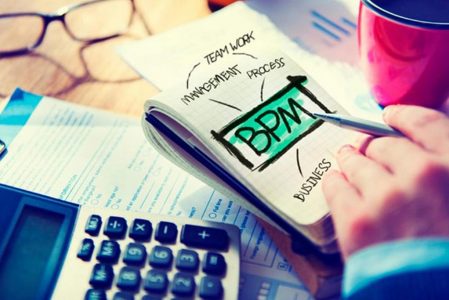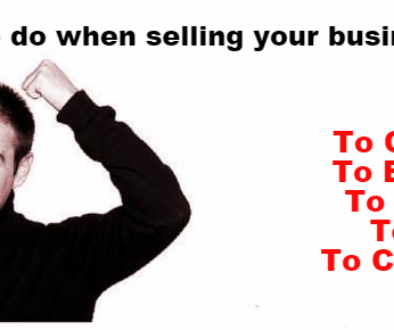Selling a Business is about Process and Knowledge
You are the heart of American commerce. You are a small business owner. You’ve built your business up over time. We recognize and applaud your achievements. We are much like you in that nearly all of us have walked in your shoes by owning and running a company ourselves. Now you are considering letting go. You are considering your options for selling the business. You understand the importance of confidentiality and wonder how you can market your business without disclosing sensitive information prematurely, or disturbing the status quo. Your trusted advisers, such as your CPA, have helped you manage your business to minimize your tax liabilities. Now, however, you wonder if the income statements negatively impact your eventual asking price for the business. You wonder if you could discreetly line up a buyer yourself. Problem is, you know what you don’t know. You know about running your business, but in your heart you know this deal is the deal of your life. You need to know you’re getting the best possible exposure and price. You need to know how to qualify your buyer prospects and their offers. You don’t have the time or resources for a misfire.
You need help. You need an experienced professional, someone whose business is selling businesses. Sure, your CPA and attorney may be involved, but they don’t sell businesses for a living. You need a business broker. You need to choose a broker who has verifiable experience and a track record in your geographical area. You want a brokerage firm that holds current membership in all the important professional associations because you want their knowledge and techniques current. You want a firm that has a large support team, maximizing the time your broker spends selling your business. You want a professional broker who is part of a large local firm – a firm that has sold thousands of businesses locally. You want a brokerage professional that has many references. You understand that getting quality offers for your business depends on receiving substantial high quality exposure to serious qualified prospective buyers.
After all it’s a numbers game. The largest number of experienced brokers, the largest pool of buyers, plus a huge amount of focused advertising, with the largest number of local successes gives you the edge. Strength in numbers gives you the leverage you need.
You seek the most likely path that will lead to the successful sale of your business. You want the path to be well worn with a minimum of forks and intersections at which a wrong turn can be taken. As an experienced navigator, Certified Business Brokers and its refined process and methodology used to achieve your goal…getting to the closing table.

If you are like most business owners, you have thought about selling your business a time or two. It’s perfectly normal to dream and wonder what it would be like to be free of all the trappings, headaches, and burdens of running your company. You probably also wonder how cumbersome the sale process might be and what it entails.
While we can’t tell you what your imagination comes up with at the thought of freedom, we can tell you that selling your business requires a substantial commitment and should be a calculated decision. As with most endeavors, whatever you put into the process is what you will get out of it.A fundamental element to a successful sale is preparation. Knowing what to expect, understanding the motives of your most probable buyer, anticipating their questions, and vetting potential problem areas of your business that might inhibit or delay an eventual sale are key to a sound selling experience. Once you feel comfortable with these basics you just might stop wondering and take the leap necessary to begin living that dream.The selling process has three distinct phases and should always be performed within the confines of Confidentiality. The anonymity of your business is critical during the sale process and is important to protecting your interests. National statistics indicate that the majority of businesses sell within four to nine months.
PHASE 1 – Message
Before this phase begins, a valuation of the business would already have been performed. A valuation provides an objective price range that you can anticipate in the marketplace. Gathering the information for a valuation is not complicated or overbearing. Typically, the documents required to determine the probable price range of a company are tax returns for the most recent three to five years, a current year profit loss statement, current balance sheet, and an equipment list. Several years of financials helps paint a financial picture and current trend of the company. Knowing the value of the business also helps determine the most probable buyer, whether it be an individual, a strategic buyer, or a financial buyer,During this initial phase the business profile is compiled. It encompasses the detailed analysis and assessment of the business for the purpose of packaging and communicating its value, its market, its assets, its strengths, its areas that can be improved (growth potential), and its financial history. The resulting profile is the Message that will introduce your business to the marketplace of appropriate buyers using a systematic methodology that protects the confidentiality of your business.
PHASE 2 – Action
This is the go phase where the business is launched into the marketplace. During this stage a rush of behind-the-scenes Action is taking place. Prospective buyers will be interviewed, confidentiality agreements will be signed, questions will be answered, and meetings will be arranged. The seller must continue to run the daily operations of the business and carry on as usual. Deviating attention away from day-to-day demands of business operations would affect employees, clients, sales, and ultimately profits — which can mean a lower price in the marketplace.
PHASE 3 – Profit Point (Pay Day)
This is the final stretch, the closing phase of the process. It commences once a Letter of Intent or Earnest Money Contract is in place, after an offer has been made and accepted.
The first step in this stage is due diligence, which is an investigation or audit of the business by the buyer. Due diligence serves to confirm all material facts in regards to the potential sale. This includes reviewing all financial records plus anything else deemed material to the sale. Sellers could also perform a due diligence analysis on the buyer. Items that may be considered are the buyer’s ability to purchase, as well as other items that would affect the purchased entity or the seller after the sale has been completed. This is especially important if the seller is financing part of the deal.
After due diligence is performed and both parties are satisfied with the results, closing activities begin. A sample of some activities that are likely to take place during this closing phase are:
- Financing / Loan arrangements
- Property lease assignments
- Environmental testing, inspections, surveys, appraisals
- Transfer of equipment leases, contracts, licenses and permits or applying for new ones
- Transfer of utilities and other services, domain name, and title to vehicles
- Establishing new corporate legal entities, merchant accounts, insurance policies
- Clearing liens and tax liabilities
- Inventory count, verification of trade receivables and payables
The closing phase is the last mile that often has bumps, curves, and detours that can obstruct the way to the goal. However, these obstacles can be overcome by an expert driver who is keenly familiar with the terrain. After thousands of excursions, we know the route well and can safely guide the way to the destination Point…the closing table…the place where you can finally realize Payment…the Profits due from years of hard work…and where you are then free to turn your dream into reality….the whole reason for the trip!




